How Much Water to Drink a Day
April 15, 2025

Water makes up roughly 60% of your body weight. Every single bodily function depends on it. It removes toxins from your organs, transports nutrition to your cells, lubricates your joints, and aids food digestion. Knowing how much water to drink a day plays a vital role in staying hydrated and supporting your overall well-being.
Not intaking sufficient water can lead to dehydration, which in severe cases may cause symptoms such as confusion, fatigue, and seizures.
It is essential to stay hydrated by meeting your body’s daily water needs. Your required intake can vary depending on your body size, physical activity level, climate, and overall health. A healthcare professional can assist determine the right amount for you.
Many health experts suggest the “8×8” rule, which means drinking eight 8-ounce glasses of water each day. This guideline can be useful but may not be suitable for everyone.
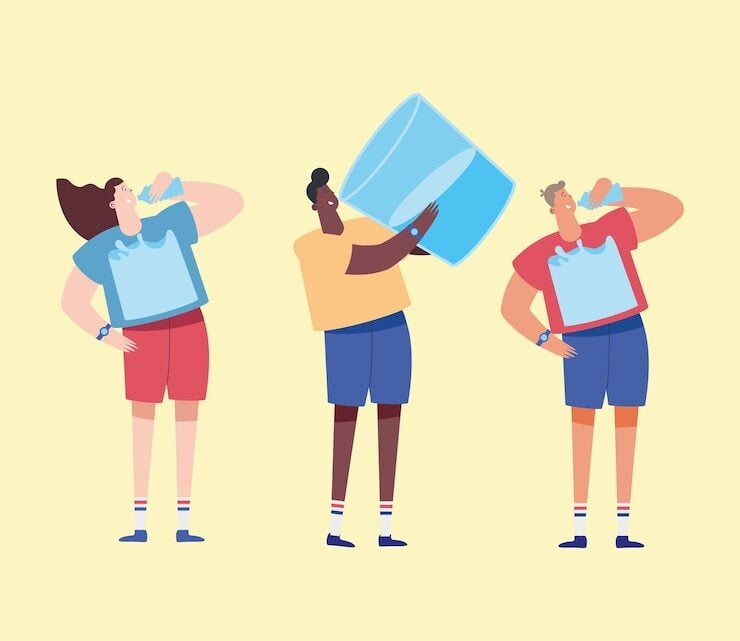
What Amount Of Water Does Your Body Require Daily?
Everyone has heard that drinking eight glasses of water a day is ideal. The truth is that everyone’s needs for water are different. But there are several fundamental rules:
The Institute of Medicine (IOM) advises males to consume 13 cups (or around 3 litres) of liquids daily.
They recommend 9 cups (just over 2 litres) of fluid per day for women. Pregnant women should consume roughly ten glasses of water every day, and breastfeeding mothers require approximately 12 cups.
You’ll need to drink more fluids to stay hydrated if you’re outside on a hot day or engaged in an activity that causes you to perspire. The same is true if you experience vomiting, diarrhoea, or fever due to your illness.
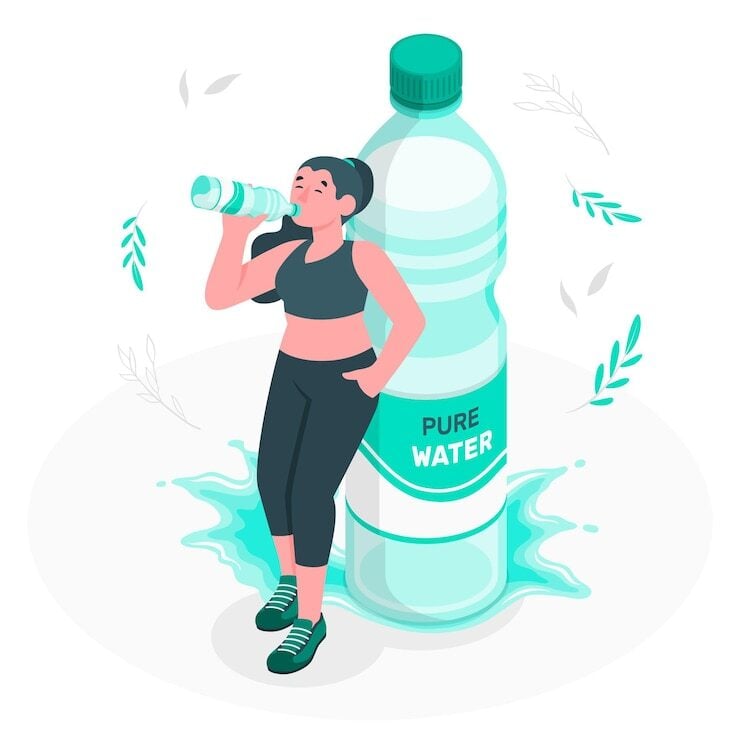
You might need to restrict your fluid consumption if you suffer from a condition like heart failure or kidney illness. But, again, consult your doctor to determine what is best for you.
If you consume a lot of coffee and other caffeinated beverages, you might lose more water through increased urine. If you eat a lot of salty, hot, or sweet foods, you should probably drink more water. You may also need to drink more water if you don’t consume many hydrating meals that are high in water, such as fresh or cooked fruits and vegetables.
How Much Water Should Children Drink a Day?
Like adults, the amount of water children require is influenced by various factors, including age, weight, and gender. Other factors include the climate where they live and their health and activity level.
Babies younger than 6 months obtain all the fluids they require from breast milk or formula. Additionally, you can provide small amounts of boiled and cooled water if needed.
Once your baby becomes 6 months old, you can offer a little water, around 4 to 8 ounces per day or about half to one cup. You can use an open cup, a sippy cup, or one with a straw to help your baby practice drinking.
Children aged 4 to 8 should drink about 40 ounces of water daily, which equals 5 cups. As they grow, their needs increase. Kids between 9 and 13 years old are advised to consume 56 to 64 ounces daily, or around 7 to 8 cups. Teens aged 14 to 18 should aim for 64 to 88 ounces of water per day, which equals approximately 8 to 11 cups.
Benefits of Drinking Water
- Assists you in eliminating waste from your body through sweat, stools, and urine
- It keeps your body from overheating and helps it maintain an average temperature
- It helps safeguard your body’s fragile tissues
- Lubricates and cushions your joints.
What Counts as Water?
Drinking water, other beverages, and meals are all included in the total water you should consume daily.
Be cautious, though, as certain fluids have disadvantages.
For instance, while smoothies, juices, and sodas might be hydrating, they can also be rich in calories and sugar.
Water is also found in coffee and tea. These beverages contain caffeine, which can cause you to urinate more frequently. If they make you tense or anxious, reduce them.
Even alcoholic beverages contain water. However, like coffee, they make you lose more water through urination, which can lead to dehydration.
Sports drinks contain a lot of water. They also contain electrolytes and carbohydrates, which can aid in water absorption and maintain energy levels. In addition, they help replenish salt lost through sweating during vigorous exercise. Be cautious, as many contain added calories, sugar, and salt. Every mother should know nutrition facts when breastfeeding an infant. Pay close attention to the serving amount, and don’t drink too much.
Sports drinks and energy drinks are not the same. Energy drinks mostly contain high levels of sugar and caffeine, both of which act as stimulants. Because of these ingredients, many healthcare professionals recommend that children and teenagers avoid them.
Lastly, don’t forget to eat! Cucumbers, iceberg lettuce, celery, and watermelon are a few examples of fruits and vegetables that are mostly water. Additionally, they offer a wide range of different vitamins and minerals.
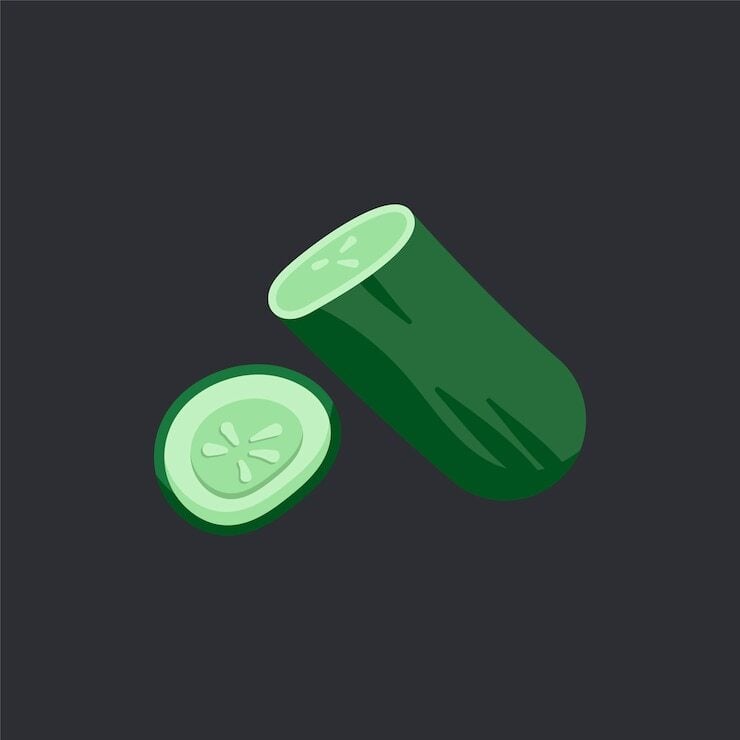
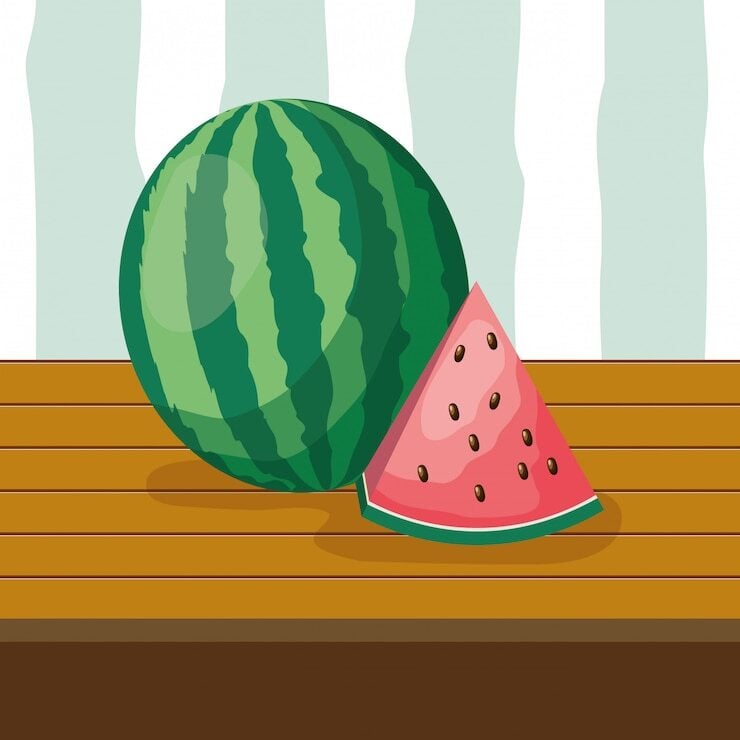
How Can I Tell If I’m Drinking Enough Water?
If: Your fluid intake is likely sufficient.
- There isn’t often a thirst.
- Your urinal fluid is clear or pale yellow.
- You can get assistance from your doctor or nutritionist to figure out how much water you should drink daily.
Make water your preferred beverage to avoid dehydration and guarantee that your body receives the required fluids. Drinking some water is a smart idea:
- Both before and after each meal
- Exercise: before, during, and after
- If you’re dehydrated
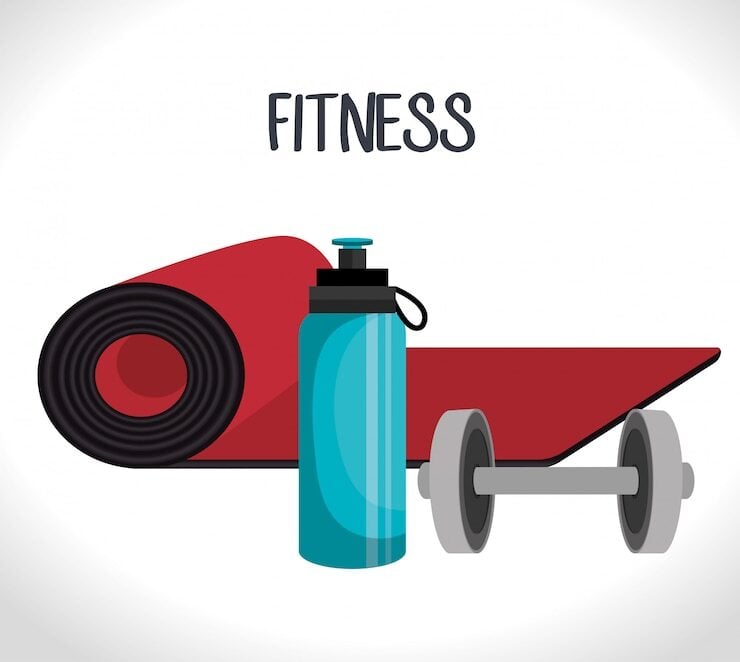
Percentage of Water Content in Food
| Water Content In Percentage | Food or Drinks |
|---|---|
| 100% | Water |
| 90-99% | Fat-free milk, tea, coffee, juicy fruits (e.g., strawberries and cantaloupes), vegetables such as lettuce, celery, and spinach |
| 80-89% | Fruit juice, yoghurt, fruits such as apples, pears, and oranges, vegetables such as carrots and cooked broccoli |
| 70-79% | Bananas, avocados, baked potatoes, cottage cheese |
| 60-69% | Pasta, beans, peas, fish, chicken breasts, ice cream |
| 30-39% | Bread, cheddar cheese |
| 1-9% | Nuts, chocolate, cookies, cereals |
| 0% | Oils, sugars |
Frequently Asked Questions
1. What happens if you drink too much water?
The kidneys can only eliminate 0.8 to 1.0 litres of water each hour. Drinking more than this can be dangerous. If you drink too much water, your blood sodium levels can become too low. This condition, known as hyponatremia, can be life-threatening.
2. How much water should I drink based on my weight?
For every pound you weigh, you should aim to drink an ounce or more of water each day. For instance, 75 to 150 ounces of water a day would be required if you weighed 150 pounds.
3. Is drinking 4 litres of water a day too much?
Drinking enough water offers several health benefits, but consuming too much in a short period, such as 3 to 4 litres, can lead to water intoxication. On average, the human body needs about two litres of water each day to support a healthy metabolism.
4. Is 64 oz of water a day enough?
Although many people follow the common advice to drink 64 ounces of water a day, this guideline may not suit everyone. Your ideal water intake can depend on factors such as your physical activity, the climate you live in, and your overall health.







